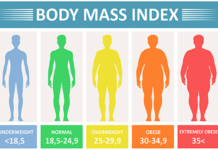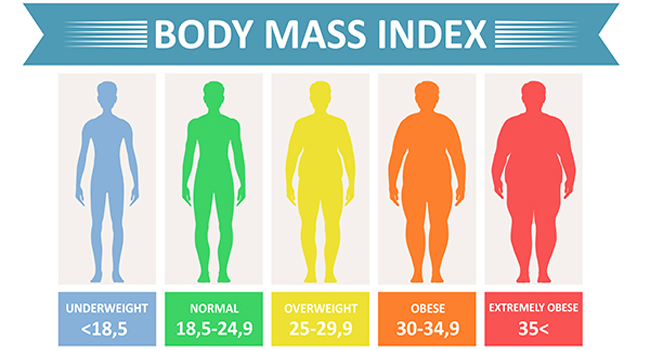Introduction:
In contemporary society, discussions about health and weight are commonplace. Among the diverse metrics used to assess fitness and frame composition, BMI (Body Mass Index) is one of the most broadly applied and mentioned. Understanding BMI is essential for all of us who are concerned about our weight and essential well-being. In this manual, we can delve into what BMI is, how it’s far calculated, its limitations, and its significance in preserving a healthy weight.
What is BMI?
BMI, or Body Mass Index, is a numerical degree that relates a person’s weight to their peak. It presents a hard estimate of body fat and enables categorizing individuals into one-of-a-kind weight classes, including underweight, average weight, obese, and obese. The system for calculating BMI is exceptionally trustworthy: weight in kilograms divided by the square of height in meters (BMI = weight (kg) / peak (m)^2).
Understanding the BMI Categories:
BMI is commonly categorized as follows:
Underweight: BMI less than 18.5
Average weight: BMI between 18.5 and 24.Nine
Overweight: BMI between 25 and 29.Nine
Obesity: BMI 30 or better
It’s vital to apprehend that BMI is a screening device and no longer a diagnostic device. While it can offer valuable insights into someone’s weight reputation, it takes time to degree body fat or overall fitness.
Limitations of BMI:
While BMI is broadly used, it has several limitations that ought to be mentioned:
Doesn’t Distinguish Between Muscle and Fat: BMI does not differentiate between muscle tissues and fat mass. Therefore, individuals with high muscle groups, such as athletes or bodybuilders, may also have an excessive BMI regardless of being healthy and matched.
Ignores Body Composition: BMI fails to bear in mind body composition, such as the distribution of fat at some stage in the frame. Two people with identical BMI might also have massively one-of-a-kind body compositions, which can notably impact fitness results.
Doesn’t Account for Age or Gender: BMI calculations do now not remember age or gender variations, which can affect body composition and fitness dangers.
May Not Reflect Health Status: Some people might also fall into the “ordinary weight” class in line with BMI but still have elevated health dangers because of other elements, such as poor weight loss program, loss of exercise, or genetic predisposition.
Interpreting BMI Results:
While BMI can provide a fashionable indication of weight fame, it has to be interpreted along with other factors:
Waist Circumference: Measuring waist circumference can provide additional statistics about stomach fat associated with extended fitness dangers.
Lifestyle Factors: Consider lifestyle elements of eating regimen, physical pastime level, and universal fitness when assessing weight reputation and fitness risks.
Family History: A family history of weight problems-related situations, consisting of diabetes or coronary heart disorder, can have an impact on fitness risks no matter BMI.
Maintaining a Healthy Weight:
Achieving and keeping a wholesome weight includes more than just that; it includes specializing in BMI. Here are a few recommendations for preserving a healthy weight and lifestyle:
Balanced Diet: Eat a balanced food regimen rich in fruits, vegetables, lean proteins, and whole grains. Limit intake of processed meals, sugary beverages, and high-fat ingredients.
Regular Exercise: Engage in regular bodily activity, including aerobic exercise and electricity schooling, to assist with average health and weight management.
Portion Control: Practice portion manipulation and conscious eating to save you overeating and sell healthy weight upkeep.
Hydration: Drink plenty of water daily to stay hydrated and guide overall fitness and well-being.
Get Adequate Sleep: Aim for seven to 9 hours of nice sleep every night, as inadequate sleep can disrupt metabolism and contribute to weight benefit.
Manage Stress: Find wholesome methods to manipulate stress, including meditation, yoga, or pastimes, to prevent emotional eating and assist ordinary well-being.
Regular Health Check-ups: Schedule everyday fitness in the United States of America. Your healthcare company will screen your weight, BMI, and ordinary fitness. These appointments can help detect any ability fitness problems early on and permit well-timed intervention.
Set Realistic Goals: When aiming to achieve or maintain a wholesome weight, it is essential to set sensible and viable goals. Break significant goals into smaller, plausible steps, and celebrate your progress.
Seek Support: Surround yourself with a supportive network of buddies, a circle of relatives, or healthcare experts who can encourage and encourage you on your journey to a wholesome weight. Joining a help group or seeking steerage from a registered dietitian or non-public instructor can provide precious steering and accountability.
Focus on Long-Term Health: Instead of focusing on short-term weight loss desires, prioritize long-term fitness and well-being. Sustainable lifestyle adjustments, including a balanced diet and regular exercise, are crucial to retaining a healthy weight and reducing the hazard of continual diseases.
Be Kind to Yourself:
- Remember that attaining and retaining a healthy weight is a journey, and setbacks are a natural part of the process.
- Be yourself and exercise self-compassion, even when facing challenges or setbacks.
- Use setbacks to gain knowledge of possibilities and live dedicated to your long-term health goals.
By incorporating these extra hints into your way of life, you can enhance the effectiveness of BMI as a tool for assessing weight reputation and promoting ordinary fitness and well-being. Remember that while BMI presents treasured insights, it’s just one piece of the puzzle regarding reaching and keeping a healthy weight. By taking a holistic approach to health that encompasses nutrients, physical interest, sleep, strain control, and regular check-ups, you can optimize your health and well-being for years.
Educate Yourself: Take the time to educate yourself about nutrition, bodily activity, and weight management. Understanding the basics of vitamins, macronutrients, and micronutrients assists you in making informed selections about your diet. Similarly, learning about distinctive workouts and their benefits can empower you to create an effective exercise tailored to your goals and alternatives.
Practice Mindful Eating: Incorporate aware consuming practices into your day-by-day routine to domesticate a more healthy courting with meals. Pay interest to starvation and fullness cues, have fun with every bite, and limit distractions even as consuming. By being extra conscious of your consuming behaviour, you may enhance your enjoyment of meals, prevent overeating, and make more healthy alternatives.
Stay Consistent: Consistency is fundamental regarding accomplishing and retaining a healthy weight. Make wholesome ingesting and ordinary exercising a constant part of your way of life instead of relying on short-term fad diets or extreme exercise regimens. Aim for sluggish, sustainable modifications you could keep over the long term.
Conclusion: BMI is a precious device for assessing weight repute and figuring out ability fitness dangers associated with obesity and weight problems. However, it is vital to understand its limitations and interpret its effects in the context of personal situations. Maintaining a wholesome weight involves a holistic method that includes balanced nutrition, regular exercise, good enough sleep, and strain control. People can reap long-term fulfilment in improper being, healthy






















